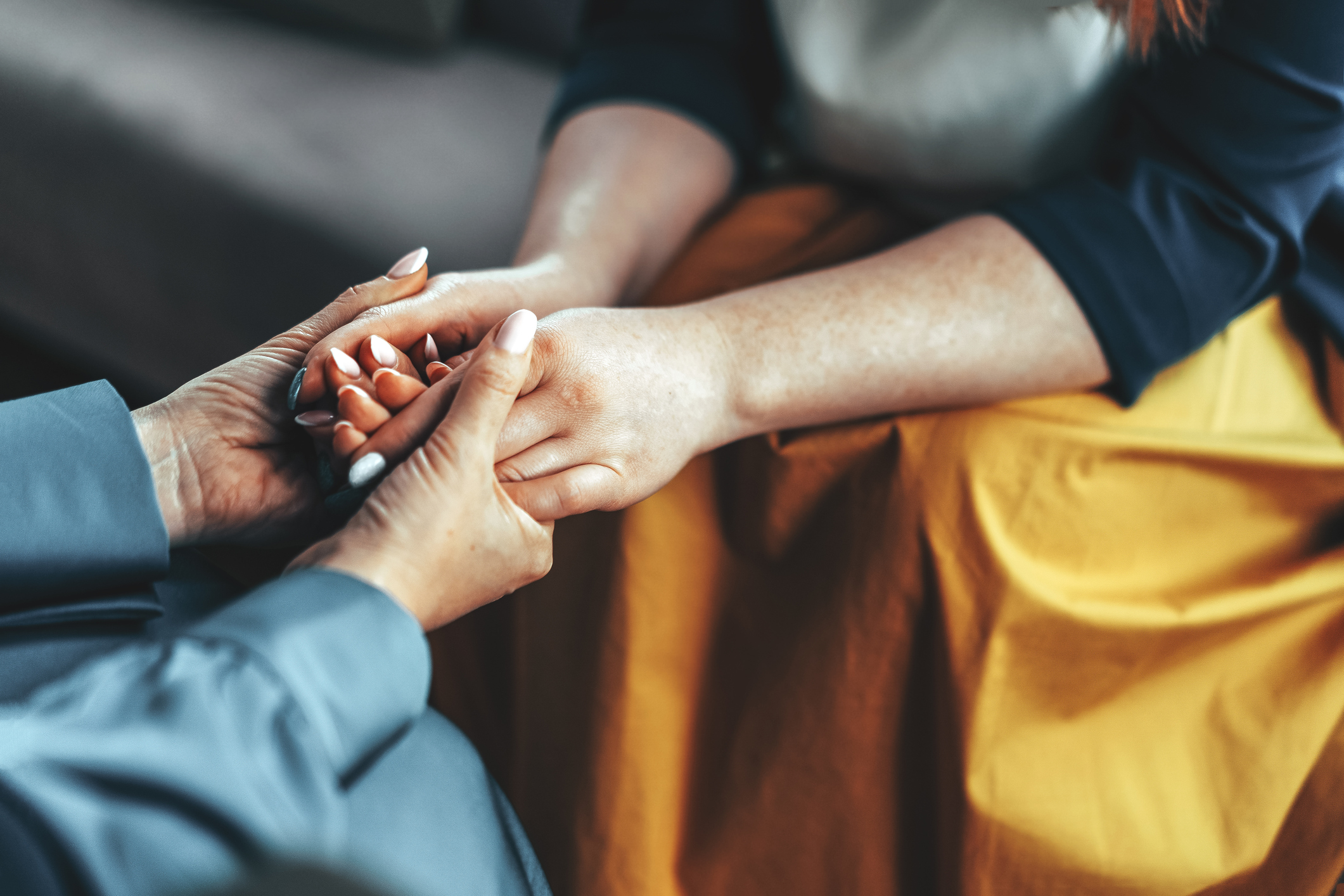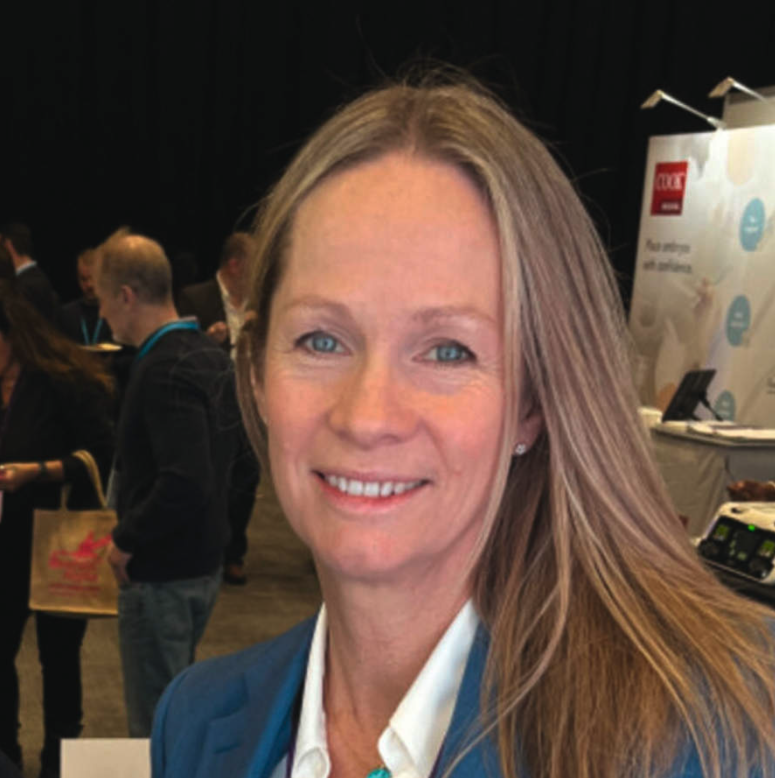Would you 'buy' your own grandchildren? With egg freezing on the rise, many parents are footing their children’s fertility bills…

This feature was originally published in October 2023 in Woman’s Own magazine, which is also owned by Future Publishing.
As a mother, it could be argued that it’s only natural to fantasise about grandchildren when our own children have grown and flown the nest. We imagine doing all of those things again that we miss from raising our own children - picnics in the park and collecting acorns and pinecones on autumn walks. But the best part, some might say, is that we get to be fun granny and grandad - not the ones disciplining or dealing with the sleepless nights.
We get all of the best bits and none of the stress! But with the average age of mothers increasing from 26 in the 1970s, to 31 today (according to the ONS), many women are left wondering if they will ever become grandmothers - especially when their daughters reach 35 - an age when fertility begins its decline. However, that gentle sound of the ticking biological clock that only gets louder with age could become a thing of the past as more and more women in the UK are hoping to preserve their fertility by freezing their eggs.
Latest figures show egg and embryo freezing are the fastest growing fertility treatments in the UK, rising 64%, from 2,576 cycles in 2019 to 4215 in 2021. But future proofing motherhood comes at a price and with costs starting anywhere from £2500, treatment is often inaccessible. Small wonder then that future grandparents are choosing to invest in their daughters fertility, footing the bill themselves rather than risk a life without grandchildren...

One woman tells us why she chose to pay for her daughter to freeze her eggs in the hopes of one day having a grandchild…
Shirley*, 58, lives in South London with her husband, Dominic*, 61.
As my daughter Eleanor*, then 35, sat at the kitchen table opposite me, sobbing, I put my hand out to reach hers and gave it a squeeze. ‘You’ll get over this, I promise,’ I told her. It was late 2022 and Eleanor had just announced that she and her partner of three years had split up and understandably, she was heartbroken. They’d grown apart, she said, and though it had been a mutual decision, it wasn’t an easy one. But while Eleanor worried if she’d ever find love again, I had other concerns. I hated myself for thinking it, but I was gutted that I was now even further away from becoming a grandmother.
That may sound selfish, but I’ve been longing for a grandchild for the best part of a decade. Eleanor’s younger sister, Sophie*, then 33, had announced years earlier that she had no desire to be a mother, and while me and my husband Dominic were disappointed, we respected her decision. Eleanor, on the other hand, longed to be a mother and she and I would often fantasise together about how lovely it would be to take her future children on days out to the zoo, and to spoil them with ice cream on sunny beach days.
Parenting advice, hot topics, best buys and family finance tips delivered straight to your inbox.
And now, as she sat in the kitchen, dabbing her eyes with a tissue, I knew, deep down, she was probably having some of the same thoughts as me. The fact was, at 35, her biological clock was now ticking. Suddenly, before I could stop myself, I blurted it out. ‘Why don’t you freeze your eggs?’
I hated myself for thinking it, but I was gutted that I was now even further away from becoming a grandmother
Eleanor looked at me and frowned. ‘Do you have any idea how much it costs?’ she replied. To my surprise, she’d actually already looked into it, and had discovered it wasn’t available on the NHS.
It cost around £3,500 for the egg collection and freezing, but that didn’t include the cost of consultations, medication and the cost to store the eggs each year. It was a lot of money and Eleanor, who worked as a primary school teacher, couldn’t afford it.
‘Your dad and I will pay for it,’ I offered. I didn’t even need to think about it. Dominic* and I both worked, him as an engineer and me as a bookkeeper. We had savings and while it was a lot of money, it would be money well spent if it would help us get the grandchild we longed for. And of course, if it helped Eleanor become a mother in the future, and took the pressure of time off of her, then of course it was worth it. When I spoke to Dominic later that night, he agreed with me. ‘We’d be investing in a grandchild,’ I told him. After a lot of thought, Eleonor agreed to accept our help.
So she booked an initial consultation with a fertility clinic in early 2023 and began taking medication to help stimulate egg growth. I went with her to her appointments, and we were told the best age to freeze eggs is between 27 and 34, but although she was 35, her egg quality was still good. Ten of her eggs were harvested and then frozen and would be kept in storage until Eleonor needed them.
Friends often gasp when we tell them how much money we’ve spent , but investing in our daughter’s future, and hopefully giving her the chance to be a mother, and us grandparents, is priceless.
It has cost us £4,300, plus we pay a yearly fee of £250 for the eggs to remain in storage. Eleanor is so appreciative and often tells me how grateful she is not to have that ticking fertility clock over her head.
She’s 36 now and still single. When the time is right for her and she meets someone she wants a family with, if she doesn’t fall pregnant naturally, at least she has her eggs on ice ready to help her out with fertility treatment - it’s like a security blanket. Friends often gasp when we tell them how much money we’ve spent , but investing in our daughter’s future, and hopefully giving her the chance to be a mother, and us grandparents, is priceless.
*All names have been changed
When is the right time to freeze your eggs?
Alison Campbell, Chief Scientific Officer, for fertility group, Care Fertility, told us, ‘Egg freezing is far more accessible and successful than it used to be. Ideally, at least by the age of 30, we would advise women to be thinking about their fertility choices, and to consider egg freezing if they want a family at some time but are not ready right now. The sooner the better is best as egg quality declines dramatically as women age. The law now permits women to store eggs (or sperm or embryos) for use in treatment for up to a maximum of 55 years. Storage consent must be renewed every 10 years. Learn all you can about your clinic, the team, costs of treatment, how to prepare and the treatment process by attending a fertility information event and reading patient stories as it can really help’

Alison Campbell is Chief Scientific Officer of the Care Fertility Group, overseeing 18 IVF laboratories across the UK, Ireland, Spain, and the US. As a Consultant Embryologist and Fellow of the Royal College of Pathologists, Professor Campbell brings a wealth of expertise to the field of Embryology. Find out more at carefertility.com.